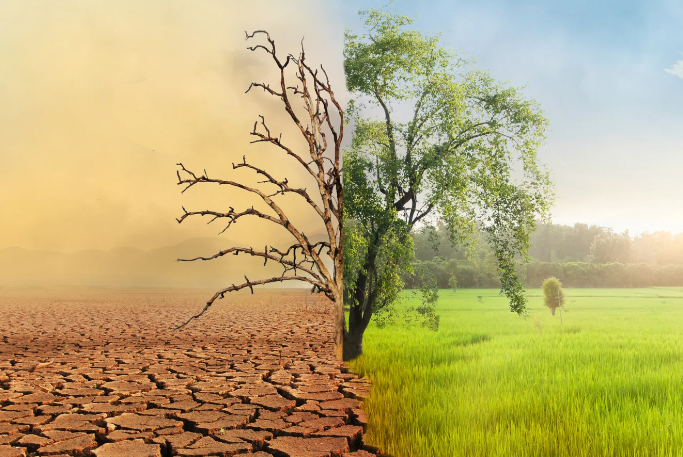Climate Change to Cost Global Economy in Trillions: Study
A report has highlighted alarming economic consequences of climate change, predicting that the global economy could face annual losses of up to USD 38 trillion by 2049. The study, conducted by scientists at the Potsdam Institute for Climate Impact Research (PIK) in Germany, warns that global income could drop by 19% within the next 25 years due to the impacts of climate change, even if significant efforts are made to reduce carbon emissions.
Widespread Economic Damages Forecasted Due to Climate Change
The study, which analyzed detailed weather and economic data from over 1,600 regions worldwide spanning the past 40 years, projects that the majority of regions will experience substantial income reductions. North America and Europe are among the hardest hit, while South Asia and Africa face the most severe impacts, primarily driven by the effects of climate change on agricultural yields, labor productivity, and infrastructure. The United States and European Union are also expected to incur significant economic costs due to climate change.
Impact of Rising Temperatures and Weather Extremes
- The predicted economic damages are largely attributed to rising average temperatures, but when other factors such as changes in rainfall patterns, storms, and wildfires are considered, the losses could escalate by an additional 50%.
- The study highlights that while regions near the poles might see some benefits due to reduced temperature variability, the hardest-hit regions will likely be those closer to the equator, which have historically contributed less to global emissions and currently have lower incomes.
Inequity of Climate Impacts
- The study emphasizes the stark inequity of climate impacts, with countries least responsible for emissions poised to suffer the most significant losses, yet least equipped to adapt.
- These countries are predicted to experience income losses that are 60% greater than higher-income countries and 40% greater than higher-emission countries.
- This disparity underscores the urgent need for adaptation efforts and support for vulnerable nations.
Urgent Action Required
The findings underscore the urgent need for immediate and drastic emission cuts to avert even greater economic losses in the coming decades. If emissions continue unabated, global losses could reach up to 60% by 2100. The study’s authors stress that structural changes towards renewable energy are imperative for economic stability and security, and failure to act decisively will result in catastrophic consequences.
About Climate Change
Climate change is the long-term alteration of temperature and weather patterns, primarily caused by human activities such as burning fossil fuels.
- Global temperatures have risen by 1.1°C since pre-industrial times.
- Sea levels are rising at an accelerating rate of 3.6 mm per year.
- Extreme weather events like heatwaves, droughts, and floods are becoming more frequent and intense.
- The Paris Agreement aims to limit global warming to well below 2°C.
Month: Current Affairs - April, 2024
Category: Environment Current Affairs








